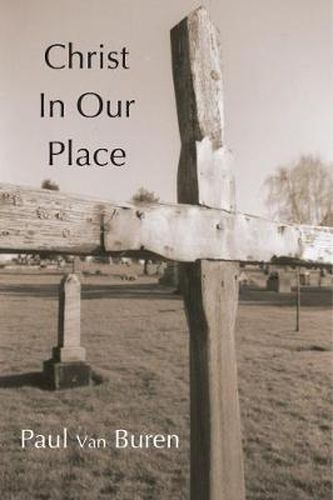Readings Newsletter
Become a Readings Member to make your shopping experience even easier.
Sign in or sign up for free!
You’re not far away from qualifying for FREE standard shipping within Australia
You’ve qualified for FREE standard shipping within Australia
The cart is loading…






This title is printed to order. This book may have been self-published. If so, we cannot guarantee the quality of the content. In the main most books will have gone through the editing process however some may not. We therefore suggest that you be aware of this before ordering this book. If in doubt check either the author or publisher’s details as we are unable to accept any returns unless they are faulty. Please contact us if you have any questions.
In the general rediscovery of the Reformation of the sixteenth century, the profile of Calvin, who was its greatest teacher, became for many once more impressive. These men had definitely no need of an authoritative orthodoxy. They were and remained free men, even with respect to Calvin (as with respect to all the Fathers of the Church). They found it good and wholesome, however, to become in all freedom the pupils of Calvin. Strange as it may seem, they learned precisely from Calvin a way of free theological thinking! Indeed this great man had not wanted to set up, proclaim and make victorious the authority of his person and teaching, but rather simply to give guidance in the hearing of the Word of God Himself as witnessed in Holy Scripture. He wished ‘to bring every thought captive unto the obedience of Christ’ (2 Cor. 10.5). He who speaks of ‘Calvinism’, he who boasts of being a ‘Calvinist’ or condemns others as ‘Calvinists’, only shows thereby that he either does not know or has not understood Calvin. He who learns from Calvin learns no ‘-ism’, but rather attention, concentration, loyalty and joyousness before the truth, the truth which is not exhausted in any ‘system’ and which no
man has done enough to serve, not even this master. But this master, in his sermons, in his exegetical writings, in his letters, and also in exemplary fashion in his Irzstz tutes, did serve the truth. He did so with the highest sense of responsibility, always with well-founded urgency, but also always in such a way as to stimulate further thought, always with stern recollection of the one thing that is necessary, and (far from being concerned entirely with mere theory) always thinking matters through in the face of the actual, practical life of the Church and of Christians in the world, and in the presence of the eternal God. As a teacher of this sort, as an educator into true theological liberalism, Calvin has become known and loved by a few of us during the past decades.
(from the Introduction)
$9.00 standard shipping within Australia
FREE standard shipping within Australia for orders over $100.00
Express & International shipping calculated at checkout
This title is printed to order. This book may have been self-published. If so, we cannot guarantee the quality of the content. In the main most books will have gone through the editing process however some may not. We therefore suggest that you be aware of this before ordering this book. If in doubt check either the author or publisher’s details as we are unable to accept any returns unless they are faulty. Please contact us if you have any questions.
In the general rediscovery of the Reformation of the sixteenth century, the profile of Calvin, who was its greatest teacher, became for many once more impressive. These men had definitely no need of an authoritative orthodoxy. They were and remained free men, even with respect to Calvin (as with respect to all the Fathers of the Church). They found it good and wholesome, however, to become in all freedom the pupils of Calvin. Strange as it may seem, they learned precisely from Calvin a way of free theological thinking! Indeed this great man had not wanted to set up, proclaim and make victorious the authority of his person and teaching, but rather simply to give guidance in the hearing of the Word of God Himself as witnessed in Holy Scripture. He wished ‘to bring every thought captive unto the obedience of Christ’ (2 Cor. 10.5). He who speaks of ‘Calvinism’, he who boasts of being a ‘Calvinist’ or condemns others as ‘Calvinists’, only shows thereby that he either does not know or has not understood Calvin. He who learns from Calvin learns no ‘-ism’, but rather attention, concentration, loyalty and joyousness before the truth, the truth which is not exhausted in any ‘system’ and which no
man has done enough to serve, not even this master. But this master, in his sermons, in his exegetical writings, in his letters, and also in exemplary fashion in his Irzstz tutes, did serve the truth. He did so with the highest sense of responsibility, always with well-founded urgency, but also always in such a way as to stimulate further thought, always with stern recollection of the one thing that is necessary, and (far from being concerned entirely with mere theory) always thinking matters through in the face of the actual, practical life of the Church and of Christians in the world, and in the presence of the eternal God. As a teacher of this sort, as an educator into true theological liberalism, Calvin has become known and loved by a few of us during the past decades.
(from the Introduction)